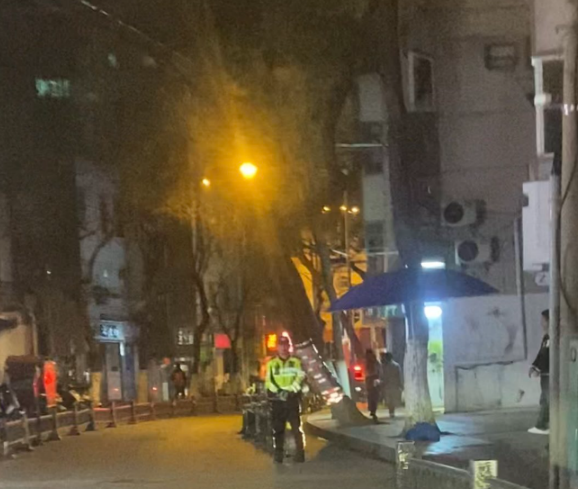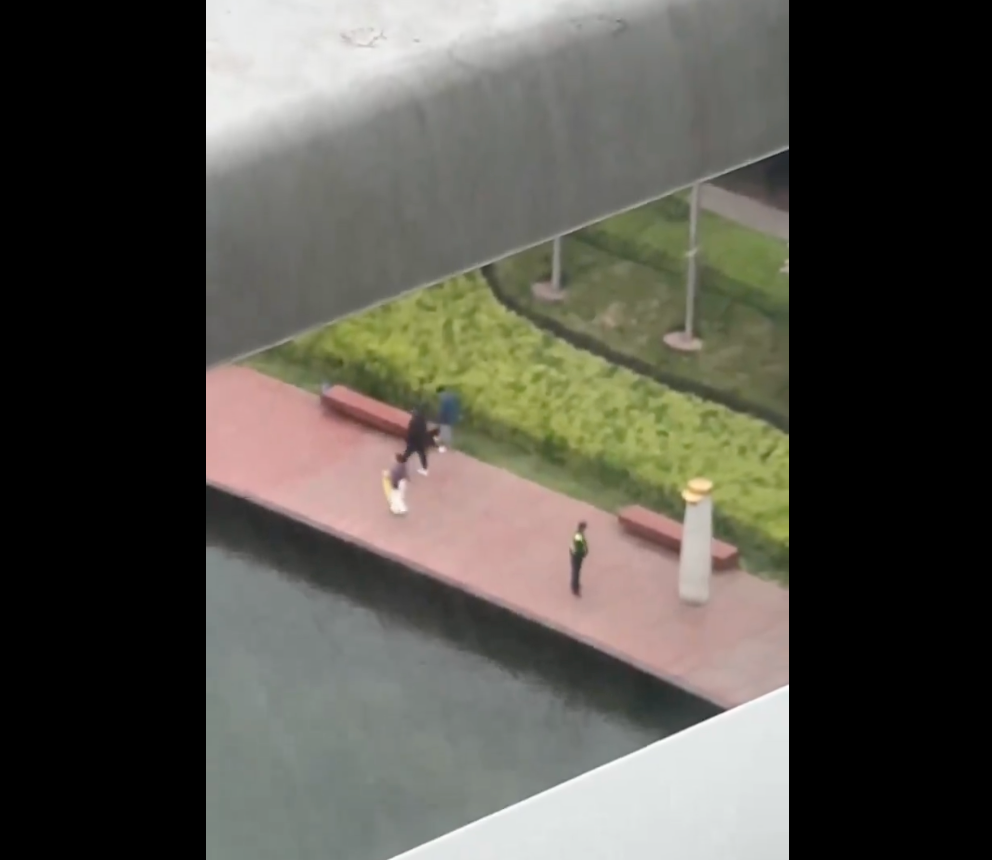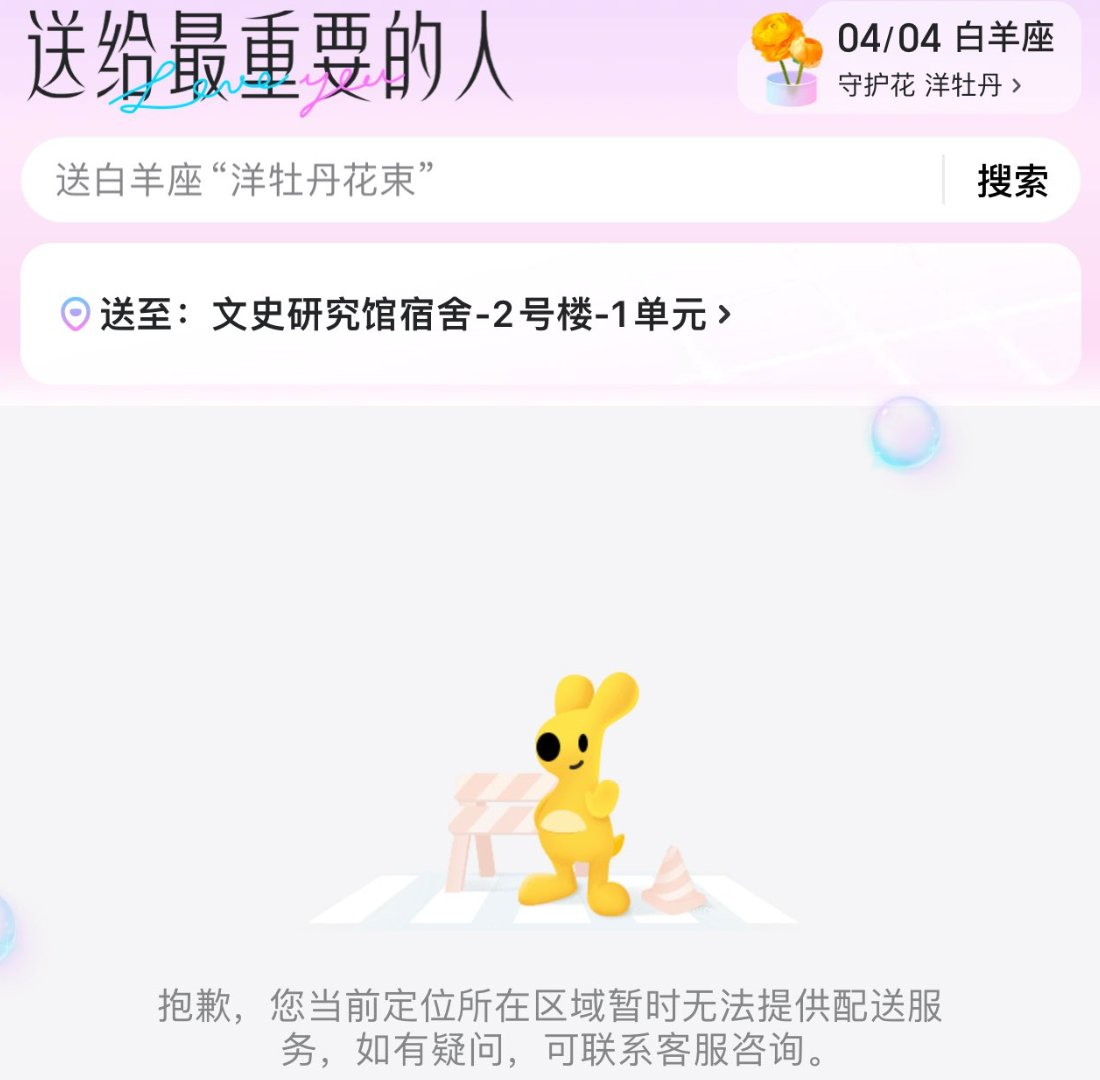In the days following former premier Li Keqiang’s death in late October of 2023, mourners left hundreds of bouquets at his childhood home in Hefei, Anhui and in various public places in Zhengzhou, Henan, where he had served as provincial Party secretary. Authorities seem determined to stop a repeat of those scenes during this year’s Qingming Festival, a traditional Chinese day of remembrance for the dead.
Photographs and videos shared on X (formerly Twitter) by @whyyoutouzhele appear to show uniformed policemen and agents of the Ministry of State Security standing watch over areas where mourners laid flowers for Li last October:
A policeman stands guard outside Li Keqiang’s childhood home in Hefei, Anhui province.
Policemen stand guard in a plaza in Zhengzhou, Henan province.
On the Meituan delivery app, users are prevented from sending flowers to Li Keqiang’s childhood home in Hefei. The message at bottom reads, “Delivery services are temporarily unavailable for the location you have selected.” [Chinese]
@whyyoutouzhele described a video posted to X on April 2 as showing police officers posted approximately every 10 meters along Suzhou’s Bianhe Bridge to prevent citizens from leaving mourning offerings to Li Keqiang during the Qingming Festival:
4月2日,社交媒体上传出宿州汴河大桥每隔10米设置一名警察站岗,防止市民在清明节期间悼念李克强。 https://t.co/lb1CVEzstB pic.twitter.com/AkJRznz3jT
— 李老师不是你老师 (@whyyoutouzhele) April 2, 2024
Chinese Human Rights Defenders reported that police had also been deployed in Beijing:
#China police on high alert, deploy guards in Beijing, warn targeted communities against displaying mourning for ex-prime minister #LiKeqiang in preventive measures. Li's sudden death last Oct ignited outpouring grief, seen as hints of Xi's unpopularity, expression of dissent. https://t.co/XWHLkVfp0C
— CHRD人权捍卫者 (@CHRDnet) April 5, 2024
In life, despite some signs of reformist inclinations, former premier Li Keqiang was a faithful implementer of Xi’s policies; an “empty boat,” in the mold of Zhou Enlai. In death, he has become an unlikely flashpoint of political contention. The state has rigorously suppressed non-official mourning of Li due to the possibility that despair over his passing could double as a critical commentary on China’s political direction under Xi Jinping. The scenes captured above are but the latest examples. After his death, netizens compared Li Keqiang favorably to Dr. Li Wenliang, writing on the latter’s Weibo “Wailing Wall” that “another truth-teller with the surname Li has departed.” Apparently in response to such online tributes, a leaked censorship directive revealed that media outlets had been warned against allowing “overly effusive praise” of the late Premier in online comment sections. Other tributes to Li were also subject to censorship. Some online went so far as to share the song “Too Bad It Wasn’t You,” expressing regret that it wasn’t Xi who had died.
Qingming, which occurs annually on the 4th, 5th, or 6th of April, seems to have joined China’s calendar of annual “sensitive dates.” June 4th, the anniversary of the 1989 Tiananmen crackdown, is perhaps the most sensitive. Others abound, of varying sensitivity: July 1st, the anniversary of Hong Kong’s handover to the mainland and an annual protest date; October 13, the anniversary of Peng Lifa’s Sitong Bridge Protest; November 25, the anniversary of Mao Zedong’s son’s death in the Korean War; October 1, National Day, a celebration of the founding of the People’s Republic; and even May 4, the anniversary of the 1919 anti-imperialist student movement that spurred on China’s political development.
Of course, political opposition through mourning is not unique to Li Keqiang’s death. The 1989 student movement began as public mourning for the late premier Hu Yaobang. The anniversaries of Zhao Ziyang’s funeral (Zhao was the Party’s General Secretary before being purged shortly before the June 4th Massacre) have always been tightly monitored by security forces. Perhaps most infamously, after Nobel Peace Price laureate Liu Xiaobo died in state custody, he was cremated and his ashes scattered at sea—in the words of The New York Times’ Chris Buckley: “ensuring that there would be no grave on land to serve as a magnet for protests against the Communist Party, especially on the traditional tomb-sweeping day every April.”


